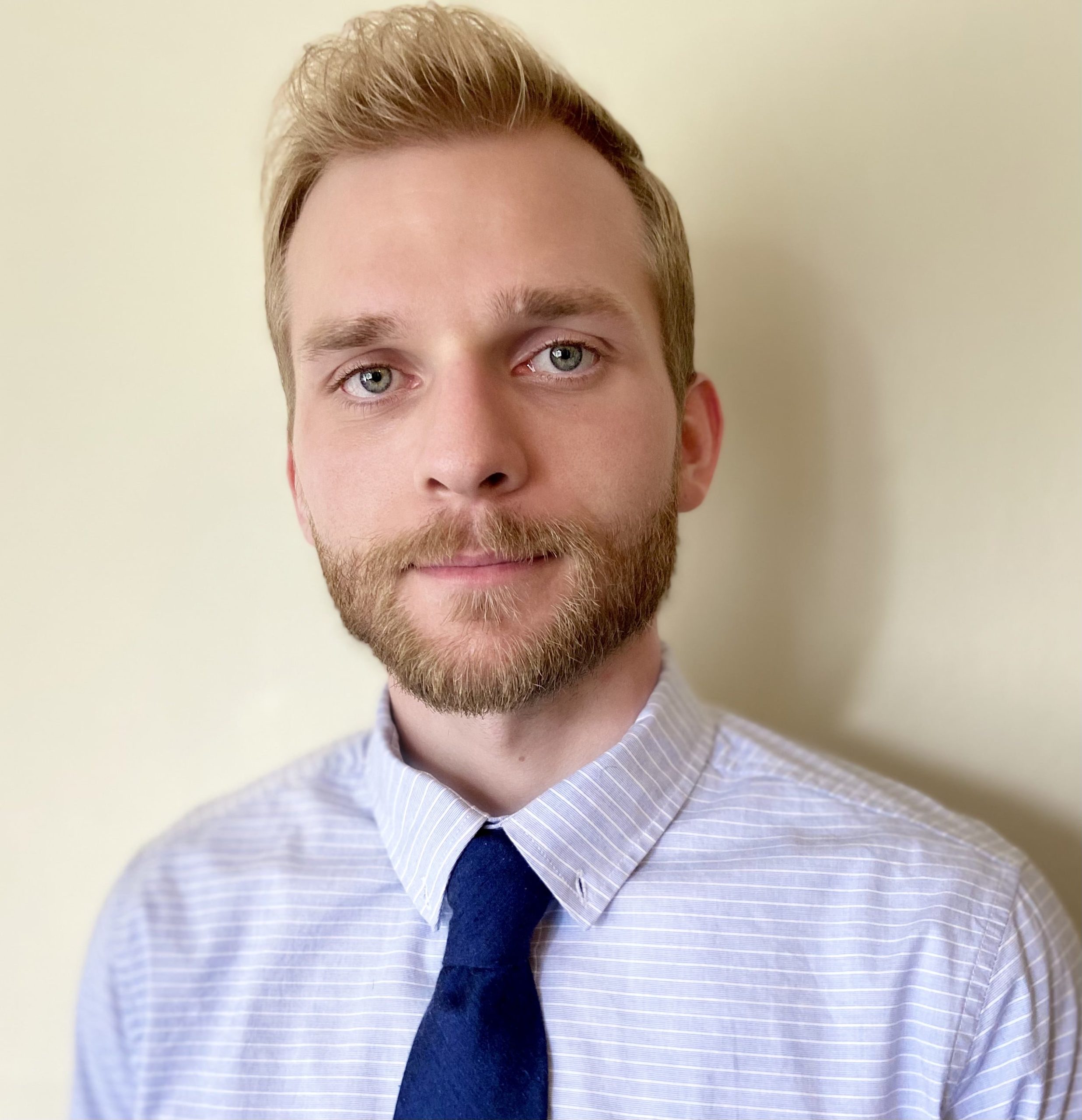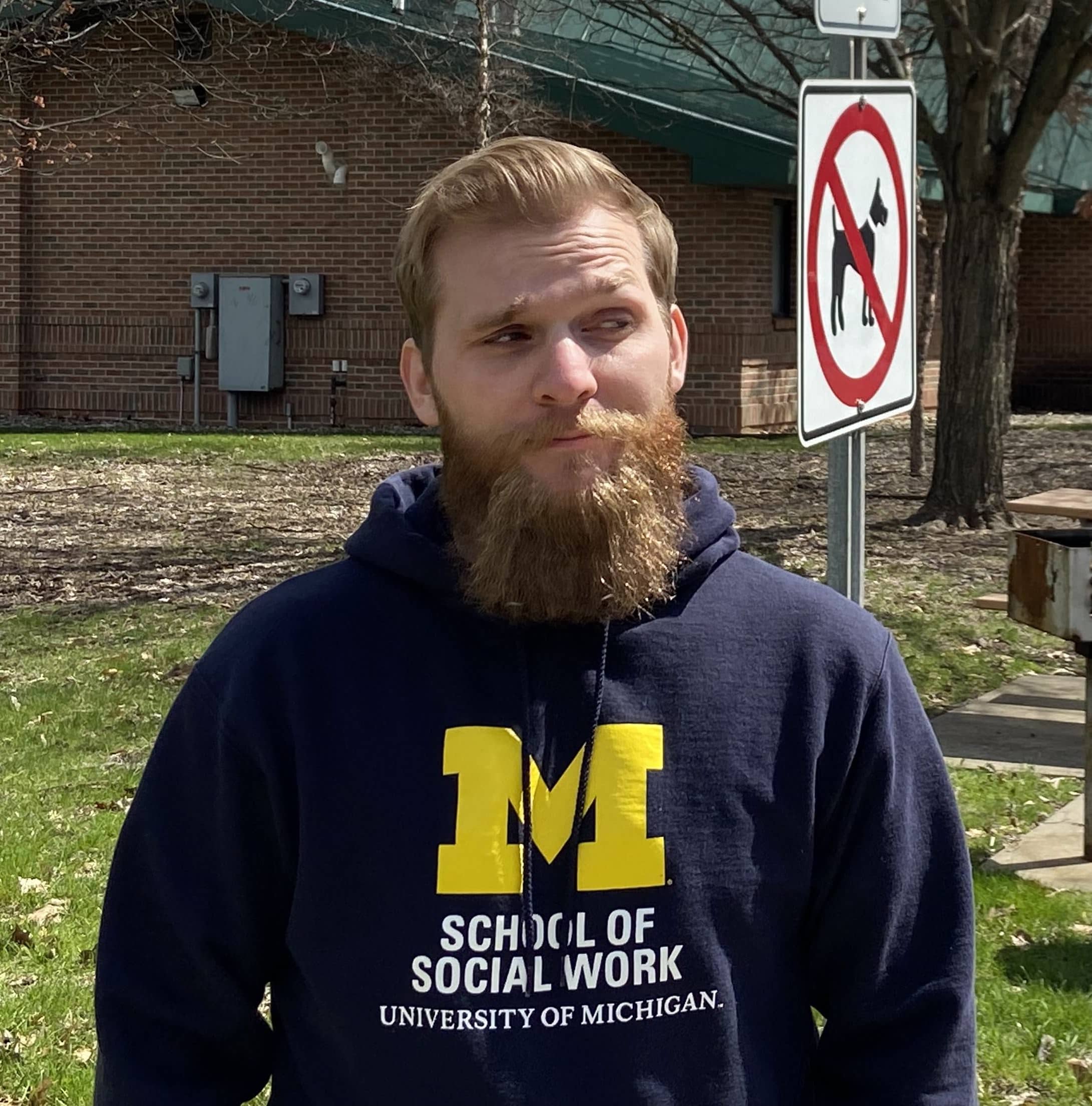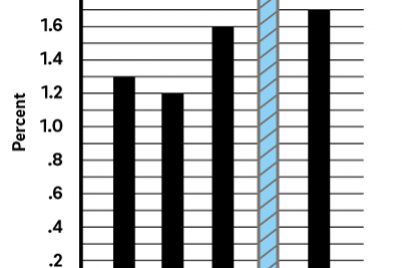
Jacob Blevins poses for his student ID at the University of Michigan. He began the master’s program at the School of Social Work in August of 2020.
From homeless to high honors, a WCC alum looks back
by JORDAN SCENNA
Deputy Editor
As Jacob Blevins brushed his teeth from an emptied liter of Popov Vodka, he never thought he’d be a college graduate. He was homeless, living out of his car which he parked at a rest stop in Howell, MI, just off I-96. Traveling families leaving the interstate to stretch their legs would be treated to a wild looking young man, complete with dirty clothes and a long, unkempt beard.
“These families would pull up and see me brushing my teeth with what they thought was vodka; it must have been a crazy sight,” Blevins said. “It was water, I drank the vodka.”
Blevins struggled with severe depression coupled with a substance abuse disorder that left him unable to care for himself. After exhausting the patience of every family member and burning every bridge, he found himself homeless; he was 25 years old.
Blevins didn’t know it then, but his current situation was only a bookend to an incredible journey.
Flash-forward
Today, Blevins is an evaluation assistant in the masters program at the University of Michigan School of Social Work. Instead of collecting cans for gas money, he’s responsible for collecting and analyzing data for organizations designed to help those in need. He credits WCC for playing matchmaker with his love of numbers.
As part of the Human Services program, he took a course in statistics and was surprised at how much he enjoyed pouring over data. This discovery changed his career path from therapy, to program evaluation and research, which is his focus at his internship at the university.
“I love data science,” Blevins said. “Using software and different tools to analyze information, it’s fun.”
Blevins was always going to be an academic. His father and older brother are both Michigan graduates who went on to become lawyers, and another brother graduated from Michigan State’s nursing program.
“I knew I wasn’t going to be satisfied unless I explored that (academic) side of things.”
Beans the magical fruit?
Flash back five years and Blevins’ family is visiting him at the roadside bathroom he’s calling home. Obviously worried, they confronted him about his health and his plans.
“I took a walk with my brother and he was asking me how I was. I showed him this bag of uncooked kidney beans I bought from Meijer. He looked at me like I was insane, but in my head I was like, ‘I have this bag of beans so I’m OK.’”
After a long discussion he decided his best bet was to go to Brighton Center for Recovery, a substance abuse rehabilitation center in Brighton, Michigan.
“It was either rehab or a Buddhist retreat in West Virginia. I think I made the right choice.”

Jacob Blevins visits the Howell, MI rest stop for the first time since he called it home for six weeks in the summer of 2016.
Going back was both strange and cathartic for him. “I kept wishing I could find the former me and tell him that it’s alright, stop running away and let the community embrace you.”
The journey begins
After rehab Jacob moved into a three-quarter house, where tenants are required to go to meetings and are subjected to drug screenings. It was then that he decided to go to school.
As a returning student in his mid-20s, he was nervous about going back. He’s always had that little voice in the back of his mind that tells him he doesn’t belong, and that voice was screaming its little head off.
“I was very intimidated when I went back; I felt like I stuck out like a sore thumb,” Jacob said.
But he was also excited, and he found the instructors humble, which helped alleviate his own feelings of inferiority.
A mentor emerges
Jacob knew he wanted a career that focused on helping people, not only people facing mental health issues, but any group that needed it.
“I wanted to help, I just didn’t know what that meant yet,” Jacob said.
He took a class with Will Teague, a professor in the Human Services department, who Jacob still considers a mentor.
Teague’s unorthodox teaching style made an immediate impact on Jacob. He was motivating and energetic. Teague didn’t hold students’ hands through the curriculum. He was honest, and gave students a clear picture as to what being a social worker is like.
“He gave us an actual education; how to be effective in the field and not harm anyone. In his classroom everyone had a voice.”
Teague and Blevins still have a good relationship to this day, as the two continue to stay in touch.
WCC to the rescue
WCC helped Jacob achieve his academic goals and assisted him in navigating his career path. He attributes WCC in getting him used to the process of being a student.
“It felt like a slingshot…I had this pent up desire to learn…I was desperate to learn. Washtenaw showed me what it felt like to learn something. And it provided me with opportunities to feel like a professional.”
While attending WCC, Jacob worked in the Writing Center as a tutor.
After WCC he transferred to Eastern Michigan University to get his bachelor’s degree in social work. He quickly realized how well WCC had prepared him.
“You could see so clearly who went to Washtenaw, they just knew more.”
He credits Will Teague and Kristy Norris with the strength of the WCC program.
Jacob graduated Summa Cum Laude from EMU in Summer 2020.
What now?
Jacob has come a long way, from living out of his Chevy Trailblazer to getting his master’s degree from the University of Michigan.
Moving forward, he hopes to get a job in research. He wants to increase access to data and improve the way data is communicated.
“Data needs to be written so people can understand it, especially the people it’s trying to help.”
For all first-year WCC students, he had this piece of advice:
“We are a lot stronger than we think, keep this in mind throughout your education.”

